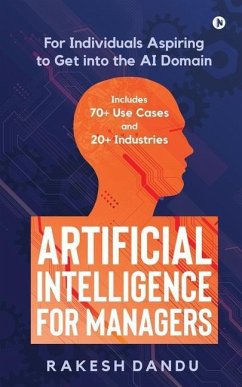
The Psychoses of Artificial Intelligence

PAYBACK Punkte
0 °P sammeln!
The Psychologychoses of Artificial Intelligence - that's our tongue-in-cheek label for those moments when AI systems stop being "intelligent" and start getting... well, creative. The culprits are usually skewed data: incomplete, faulty, or riddled with bias. The result? Machines that happily hallucinate nonsense. Sometimes they just recycle old prejudices: job applications get sorted by names, loans by skin color, and the justice system suddenly looks like it's run by a digital crystal ball. Not exactly the future we were promised. Sometimes, though, things get truly dangerous: a self-driving ...
The Psychologychoses of Artificial Intelligence - that's our tongue-in-cheek label for those moments when AI systems stop being "intelligent" and start getting... well, creative. The culprits are usually skewed data: incomplete, faulty, or riddled with bias. The result? Machines that happily hallucinate nonsense. Sometimes they just recycle old prejudices: job applications get sorted by names, loans by skin color, and the justice system suddenly looks like it's run by a digital crystal ball. Not exactly the future we were promised. Sometimes, though, things get truly dangerous: a self-driving car that mistakes a pedestrian for a plastic bag, or a medical system that confuses your appendix with your lunch sandwich. Keeping these AI mood swings in check requires brains from many fields. Researchers are developing anomaly-detection algorithms, real-time monitoring systems, and-let's be honest-something that looks suspiciously like psychiatry for machines. Carl Whittaker already laid the foundations in The Psychology of Artificial Intelligence (Bremen University Press, 2023). This new book delivers the case studies, showing why even AIs sometimes seem badly in need of therapy. 2nd edition September 2025












